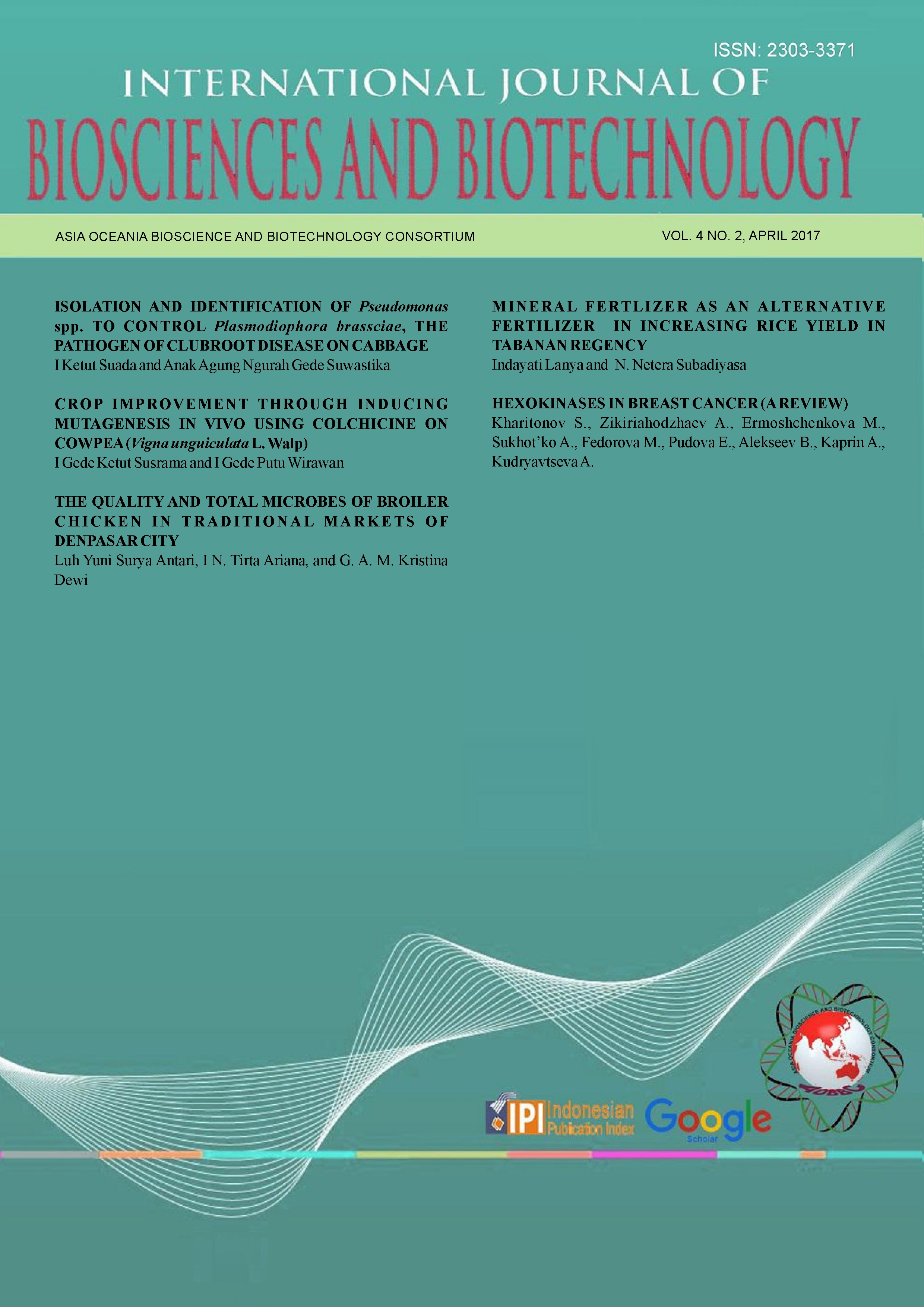ISOLATION AND IDENTIFICATION OF Pseudomonas spp. TO CONTROL Plasmodiophora brassciae, THE PATHOGEN OF CLUBROOT DISEASE ON CABBAGE
Abstract
Clubroot is very detrimental disease to cabbage production so as farmers work on various efforts to control it. The use of fungicides not only ineffective but also pollute the environment, therefore biological control system need to be pursued. The use of antagonistic agents such as Pseudomonas has been widely studied and known effective in suppressing various pathogens. Therefore it is worth trying its effectiveness against Plasmodiophora brassicae, a pathogen of cabbage. The purpose of this study was to obtain indigenous Pseudomonas which effectively suppress the pathogens and may also increase plant growth. Microbes were isolated from the cabbage area using the Kings'B medium with multilevel dilution. All isolates were tested for their effectiveness in pots in a Completely Randomized Design with a concentration of 1.5x106 CFU (Colony Forming Unit) per pot. The variables observed were plant growth, number of club roots, and percentage of disease incidence. Fourteen isolates of Pseudomonas were isolated. Three Pseudomonas isolates were found most effective at suppressing clubroot disease and increasing plant growth. The best isolate obtained was Pseudomonas-6, followed Pseudomonas-9, and Pseudomonas-8.






